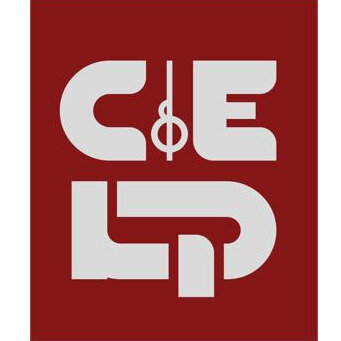Best E-commerce & Internet Law Lawyers in Lekki
Share your needs with us, get contacted by law firms.
Free. Takes 2 min.
List of the best lawyers in Lekki, Nigeria
About E-commerce & Internet Law in Lekki, Nigeria
Lekki, one of the growing urban centers in Nigeria, is a hub for e-commerce and internet businesses due to its vibrant economy and technological adoption. E-commerce & Internet Law in Lekki encompasses legal issues affecting online businesses, including online contracts, data protection, consumer rights, digital transactions, and intellectual property. This legal field is evolving rapidly with advancements in technology and increasing online business activities.
Why You May Need a Lawyer
Engaging with a lawyer specializing in E-commerce & Internet Law can be crucial in various scenarios, such as:
- Contractual Agreements: Designing, negotiating, and enforcing online contracts or terms of service agreements.
- Intellectual Property: Protecting trademarks, copyrights, or patents in an online environment.
- Data Protection Compliance: Ensuring compliance with Nigeria’s data protection regulations and handling data breaches.
- Consumer Protection Disputes: Addressing disputes arising from online sales or services.
- Business Formation: Guiding through the legal process of establishing an online business entity.
- Regulatory Compliance: Understanding and complying with capital markets and securities mechanisms relevant to e-commerce.
- Cybersecurity Issues: Addressing legal issues resulting from cyberattacks or data theft.
Local Laws Overview
Key legal frameworks governing e-commerce and internet businesses in Lekki, Nigeria, include:
- Nigerian Data Protection Regulation (NDPR): Outlines guidelines for data privacy and protection for online businesses handling personal data.
- CAMA (Companies and Allied Matters Act): Governs the formation, registration, and operations of businesses in Nigeria, including internet-based companies.
- Nigerian Communications Act: Provides guidelines for telecommunications operations, crucial for internet service providers and tech companies.
- Cybercrimes (Prohibition, Prevention, etc.) Act: Addresses cybercrimes and stipulates penalties for electronic fraud and hacking.
- Consumer Protection Framework: Ensures fair treatment and protection for consumers engaging in online transactions.
Frequently Asked Questions
1. What is the importance of having Terms and Conditions on my e-commerce website?
Terms and Conditions help inform users of your policies, protect your business from liability, and ensure you comply with legal requirements.
2. How do I ensure compliance with data protection laws for my online business?
Adopt a comprehensive privacy policy, implement data security measures, and educate your team on NDPR requirements to ensure compliance.
3. Can I protect my brand’s name legally?
Yes, you can protect your brand by registering trademarks and patents. An attorney can assist with the process and offer advice on IP protection strategies.
4. What are my rights if my online business suffers from a cyberattack?
You have the right to seek legal redress. It’s essential to report the incident to law enforcement and follow regulatory guidelines on data breaches.
5. Are there any regulations for online advertising in Nigeria?
Yes, online advertising is governed by general advertising standards and e-commerce laws to protect consumers from misleading advertisements.
6. How can I resolve a dispute with an unhappy customer?
Attempt resolution through your customer service as per your resolution policies, and if unsuccessful, a lawyer can mediate or pursue litigation.
7. Do I need to register my online business?
Yes, registering your business under CAMA is necessary for legal recognition and to establish a corporate identity.
8. How do e-signatures work within Nigerian law?
E-signatures are legally recognized in Nigeria and can be used to authenticate contracts and agreements online.
9. Can internet-based businesses access loans or grants in Nigeria?
Yes, many financial institutions and government programs offer funding options tailored for tech and online businesses.
10. How can I ensure my website is legally compliant?
Consult with a lawyer to review your website’s content, privacy policies, terms of service, and adherence to applicable laws.
Additional Resources
Consider reaching out to the following entities for assistance:
- Nigerian Communications Commission (NCC): For advice on communications regulation compliance.
- Nigerian Office for Developing the Indigenous Telecoms Sector (NODITS): Offers guidance on local business development.
- Corporate Affairs Commission (CAC): For registration and compliance related to business formation.
- Nigerian Information Technology Development Agency (NITDA): Provides resources on data protection and IT growth.
Next Steps
If you need legal help regarding E-commerce & Internet Law, follow these steps:
- Research: Look for reputable lawyers or law firms in Lekki with expertise in e-commerce and internet law.
- Consultations: Schedule consultations to discuss your legal needs and evaluate potential legal strategies.
- Engage: Choose a lawyer or firm that understands your specific requirements and can provide personalized support.
- Stay Informed: Keep abreast of developments in e-commerce law to ensure your business remains compliant.
Lawzana helps you find the best lawyers and law firms in Lekki through a curated and pre-screened list of qualified legal professionals. Our platform offers rankings and detailed profiles of attorneys and law firms, allowing you to compare based on practice areas, including E-commerce & Internet Law, experience, and client feedback.
Each profile includes a description of the firm's areas of practice, client reviews, team members and partners, year of establishment, spoken languages, office locations, contact information, social media presence, and any published articles or resources. Most firms on our platform speak English and are experienced in both local and international legal matters.
Get a quote from top-rated law firms in Lekki, Nigeria — quickly, securely, and without unnecessary hassle.
Disclaimer:
The information provided on this page is for general informational purposes only and does not constitute legal advice. While we strive to ensure the accuracy and relevance of the content, legal information may change over time, and interpretations of the law can vary. You should always consult with a qualified legal professional for advice specific to your situation.
We disclaim all liability for actions taken or not taken based on the content of this page. If you believe any information is incorrect or outdated, please contact us, and we will review and update it where appropriate.









